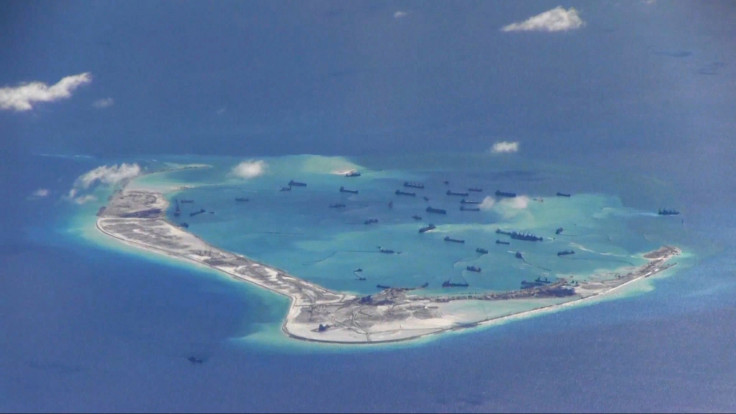Artificial islands in disputed waters will improve weather forecasts, claims China

Beijing claims its land reclamation programme in disputed sections of the South China Sea – angering most of its neighbours – is aimed at improving weather forecasts.
The US says China has reclaimed some 2,000 acres on reefs and atolls in the area in recent years, creating artificial islands that might host military facilities, bolstering Beijing's territorial claims in the region.
Speaking ahead of key China-US talks, however, two leading Chinese scientists said that improving weather forecasts is one of the main goals of the controversial construction activities.
"The construction of infrastructure for observation and communication is the first step towards enhancing and improving marine meteorological monitoring, warning, forecasting, prediction and scientific research," Ding Yihui of the Chinese Academy of Engineering told the People's Daily, a Communist Party mouthpiece.
In a separate interview with the same newspaper, Zheng Guoguang, the head of the China Meteorological Administration, said the building of new meteorological facilities is to benefit the whole region, which often suffers from extreme weather, the South China Morning Post reported.
The claims appeared to be directed at easing tensions before Chinese delegates meet their US counterparts in Washington for annual US-China Strategic and Economic Dialogue tomorrow and Wednesday (23 and 24 June), where Beijing's activities in the South China Sea are expected to be high on the agenda.
Last week, the top US diplomat for East Asia said Washington was worried about the the prospect of China militarizing its maritime outposts in the Spratly Island chain, a resource-rich archipelago, parts of which are claimed also by the Philippines, Vietnam, Malaysia, Brunei and Taiwan.
"Frankly, we are concerned, and others are concerned," assistant secretary of state Danny Russel said.
Earlier, China's foreign ministry said land reclamation activities in the area had been almost completed, stressing the project would satisfy military defence needs but was mainly to serve civilian purposes, such as maritime search-and-rescue and scientific research.
© Copyright IBTimes 2025. All rights reserved.






















